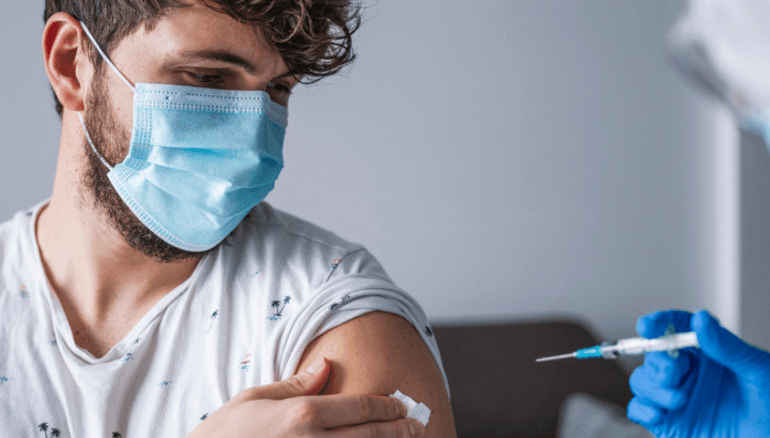While 49% of Aussie men are willing to get vaccinated as soon as possible1, that still leaves a significant amount of vaccine hesitancy in the community.
A concern that may be contributing to some vaccine hesitancy in men is the myth that the COVID-19 vaccine can cause infertility.
Posts spread on social media claim the COVID-19 vaccines could cause “mass male infertility” and that “all males who have been vaccinated are effectively sterile.”
However, there is no evidence that any vaccine, including the COVID-19 vaccine, causes male infertility.
“There’s no evidence that vaccination harms male fertility and there’s good evidence that the vaccine protects against COVID infection,” says Prof Jim Buttery, infectious disease physician and head of Infection and Immunity, and Director of Research at Monash Children’s Hospital and head of Monash Immunisation, Monash Health.
Sperm production could be impacted in the short term in some men who experience a fever after being vaccinated — a side effect of the vaccine’s intended immune response. Men who have a fever can experience a temporary drop in sperm quality that’s resolved within a couple of months2.
Research has also looked at how Pfizer and Moderna vaccines affect sperm health. A study published in JAMA analysed semen volume, sperm concentration, sperm motility and total sperm count in 45 healthy men before their first vaccine dose and around 70 days after their second3.
They found no significant decrease in any of the sperm quality parameters compared with the samples taken before the COVID-19 shots.
Why get the COVID-19 vaccine?
The COVID-19 vaccines provide a high degree of protection against getting seriously ill and dying from the disease. They work by exposing your body to either a killed or weakened version of a virus (like COVID-19) or a section of genetic material that can be read by your cells.
This trains your immune system to recognise and fight off the disease-causing germ when it encounters it in the future.
The vaccines available in Australia — Pfizer and AstraZeneca — are rigorously assessed and approved by the Therapeutic Goods Administration, which means they are effective, and the benefits outweigh its risks.
All vaccines can cause side effects, most of which are mild and temporary. These side effects can include pain at the injection site, fever or muscle aches. You can learn more about the safety and side effects of COVID-19 vaccines here.
If you have concerns about getting vaccinated against COVID-19, be critical about where you get your information from.
“I’d encourage people to seek reputable sources of information and the best one is their own GP, who they’ve got a relationship with, and they trust,” Prof Buttery says.
For accurate, evidence-based and up-to-date information about COVID-19 vaccines visit health.gov.au.














